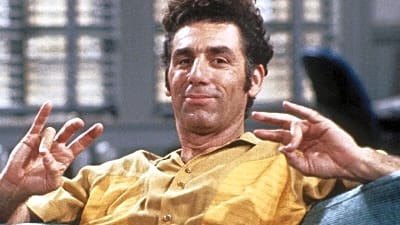
Given his postseason résumé, most hockey analysts would have given Sergei Bobrovsky the edge in the Stanley Cup Final’s goaltending battle. He’s been here before—calm under pressure, capable of stealing games, and the backbone of a Florida Panthers team built for the playoffs. Early in Game 4, Bobrovsky might have shut the door on the Edmonton Oilers for good. But he did not.
In comparison, the Oilers’ goalies – Stuart Skinner and Calvin Pickard – still have much to prove. The Panthers seemed poised to take complete control of the series after leading the Oilers 3–0 after the first period on home ice. But then came the comeback.
The Oilers Refused to Fold and Mounted a Comeback Against Bobrovsky
Edmonton refused to fold. They clawed back, tied the game, and won in overtime. Doing so, they snatched momentum in a game that could’ve ended their season. At the heart of that wild swing was goaltending.
Bobrovsky and Edmonton’s Pickard had moments of brilliance and chaos. Their performances didn’t just reflect the game’s outcome; they shaped it. Now, with the series knotted at two games apiece, one question looms: How will the goaltending battle impact the rest of the Stanley Cup Final? Because from here on out, this series might hinge on which goalie rises—or breaks.
Game 4 of the Stanley Cup Final was a thriller, but not just because the Oilers tied the series. Beneath the goals and highlight-reel plays was a goaltending chess match that might define who lifts the Stanley Cup. Former NHL netminder Carter Hutton joined FAN Hockey Show to break down the performances of Pickard and Bobrovsky—and the analysis revealed much about what’s at stake in Game 5.
The Oilers Pickard’s Gamble Pays Off—Barely
As Hutton put it, Pickard’s approach to Game 4 was nothing if not bold. Playing aggressively atop—and sometimes beyond—his crease, he wasn’t trying to survive the game; he was trying to steal it. As Hutton said, “He’s not the cookie-cutter, well-groomed goalie… he’s a gamer.” Pickard relied on reads, instincts, and guts.
That style almost cost him. He often “swam” on east-west plays, especially on the tying goal. A more positionally sound goalie might have held his line, but Pickard bet on his feel—and it worked just enough.
Going into Game 5, expect some adjustments. Hutton believes Pickard will be more measured and composed now that he’s felt the weight of a Stanley Cup Final start. “You go through the routine,” he noted. “The presence of mind to know just to stop the first one, not be so aggressive at all costs, will help him.”
Bobrovsky’s Instincts Worked Against Him
While Pickard played too aggressively, Hutton believed Bobrovsky might have been too reactive. Known for his quickness and athleticism, the Florida goalie overcommitted and got beaten high.
Through the first three rounds, teams aimed low, going five-hole. But in Game 4, the Oilers found a new vulnerability: up top. Hutton pointed to Leon Draisaitl’s goal, where Bobrovsky guessed and overplayed, expecting a pass to Corey Perry. That anticipation cost him.
Another key play? Ryan Nugent-Hopkins’s goal went high blocker. Bobrovsky had time, but he was too low and too aggressive. Hutton summed it up: “His over-athleticism is hurting him… He gets stretched out.”
What This Goalie Play Means for Game 5
This isn’t just a story of two goalies having an off night. It’s a psychological battleground. Pickard, the underdog, now has confidence and momentum. Bobrovsky, the proven elite, is under pressure to respond.
The Panthers will likely tighten their defensive structure to protect Bobrovsky early. At the same time, the Oilers might double down on quick puck movement and elevation, aiming high and moving laterally to exploit his overcommits.
The Bottom Line for the Panthers and the Oilers
Game 5 will hinge on adjustments in the blue paint. If Pickard finds balance between instinct and structure, and if Bobrovsky reins in his overextensions, we could be in for another classic. But if either goalie falters, it might be the edge one team needs in a series that now feels like it could go the distance.
More must-reads:
- Stanley Cup Final Game 5 takeaways: Panthers one win away from history
- Dodgers manager offers major update on Shohei Ohtani
- The '50-goal NHL seasons since 2000-01' quiz
Breaking News
Trending News
Customize Your Newsletter
 +
+
Get the latest news and rumors, customized to your favorite sports and teams. Emailed daily. Always free!







